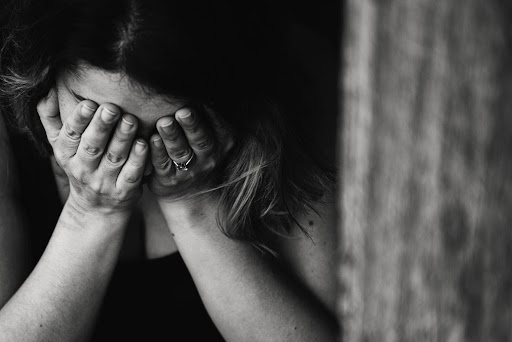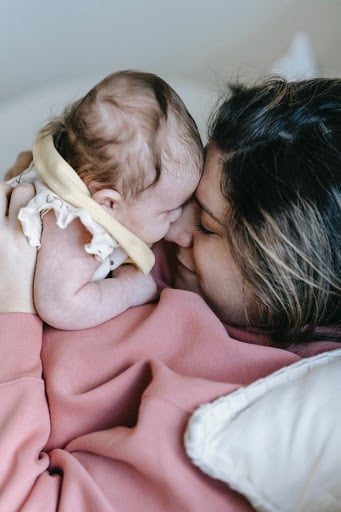Can a woman go crazy after giving birth? – Google suggested this question when a search for ‘postpartum depression’ was made. Yes, females have it hard. From menstruation to pregnancy and even after – the term motherhood encompasses a spectrum of rewards – from gratifying to downright miserable.
The terms postpartum and postnatal are used interchangeably to refer to the time after pregnancy, although postpartum is correlated with the mother’s condition after birth, whereas postnatal relates to the baby.
After childbirth, parents experience a cornucopia of extreme emotions, but the mother would be more susceptible to a fluctuating emotional state due to the chemical and physical changes that occur when the baby is born.
During pregnancy, the levels of estrogen and progesterone increase tenfold and these levels plunge to what they were before pregnancy after delivery. These chemical alterations in the body, coupled with the social and psychological changes of having a baby, increases a mother’s risk of depression.
The symptoms start to manifest usually within four weeks of delivery, and can be characteristic of non-pregnancy-related depression.
These can be related to the baby and motherhood, such as doubting her ability to care for the child or feeling guilt about her inability to feel love for her newborn.
Kamila Bogdan from the United Kingdom was someone who killed her daughter Julia because she felt that she was “not able to look after her in the way a mother should.”
Similar tragic stories also happen here at home in Singapore. A 35-year-old woman jumped off the building with her five-week-old daughter after claiming in her suicide note that she was not able to cope with caring for her baby.
“The pressures from caring for a newborn can be immense. Coupled with the demands from managing the household and family while getting ready to return to work, may all seem insurmountable,” commented the coroner of the local case.
The statistics can be unnerving. About one out of ten women develop a more severe and longer-lasting depression after delivery.
Common symptoms include insomnia, fatigue, loss of appetite, suicidal thoughts and some develop obsessive compulsive disorder (OCD). The obsessions are usually related to concerns about the baby’s health or irrational fears about the baby’s safety.
“I was so overwhelmed and stressed taking care of a baby, working full time, trying to keep the house somewhat clean and fit in sleep when I could. I completely ignored everything around me, including my husband and myself. All of my attention was focused on my child. I would get angry out of nowhere when my child would cry non-stop, which sometimes led me to raise my voice at him. I knew it wasn’t his fault, and he couldn’t help it. I didn’t want to be like that at all!” shared Karen, who was diagnosed with postpartum depression after filling out a depression score sheet with her family doctor.
One out of 1,000 women develop an even more serious condition called postpartum psychosis.
Those experiencing postpartum psychosis can even hallucinate and demonstrate a manic mood by talking or thinking too much or too quickly. Psychosis suggests that one has lost touch with reality.
Women who were diagnosed with postpartum psychosis reported having had psychotic breakdowns and one even stripped herself naked on a highway during a state of delusion.
Even fathers are not spared. Research shows that one out of ten new fathers develop depression during the year their child is born. Similar to mothers’ experience, fathers may feel down, fatigued or overwhelmed, especially if they have a history of depression.
Sometimes called paternal postpartum, it can have the same negative effect on the individual and on the parent/partner-child relationship.
Janet Chang, a clinical psychologist, added that many may be reluctant to seek help because they think it could be “just a phase”.
Parents may also harbour the “fear of being judged or feeling like a failure” because calling out for help will equate to them admitting that they have a problem and have failed as a parent.
Without treatment, postpartum depression can last a long time. Whether it lasts for just weeks, months or years, it is detrimental to one’s health and to the people around. Parents with postpartum depression may find obstacles in caring for or connecting with their child, and that can have an indelible impact on the child’s behaviour and health.
Fortunately, many who recognise that they are depressed seek help early, which makes full recovery more likely.
The recovery time is dependent on how long the problem was left untreated and how serious the symptoms were. The best treatment also differs for each person.
Some may recover simply by support and practising meditation, while some may require many sessions of therapy.
Others may need a combination of therapy and antidepressants. Counselling is a recommended treatment as many parents feel stress liberated off their shoulders just by talking to a professional.
There are several types of therapy suitable for postpartum depression. Interpersonal Psychotherapy (IPT) is thought to be one of the most effective treatment models.
IPT works on the principle that the distress is rooted in four areas: grief (loss of sense of self), role transitions, interpersonal disputes and interpersonal deficits (attachment in other relationships that may be causing distress). The classic Cognitive Behavioural Therapy (CBT) is best known for treating anxiety, including OCD.
By working with the mother to identify and acknowledge her automatic thoughts, evaluating them and developing helpful perspectives, the mother will find herself rationalising before impulsively reacting to situations.
The Dialectical Behavioural Therapy (DBT) teaches skills in mindfulness, distress tolerance, emotional regulation and interpersonal effectiveness to tackle postpartum depression. It is often supported through both individual and group session therapy.
Another method would be the Psychodynamic Psychotherapy, which focuses on unconscious past experiences in understanding current behaviour.
There are various other approaches suitable for this condition, depending on the patients’ needs. It could even be a combination of methods that may deliver the distressed person out of the rut, and that can be assessed successfully with the suitable therapist.
Janet quipped, “It is important to firstly educate clients what they are going through, validate and normalise their feelings, and provide information and hope about how therapy might help.”
Many of Janet’s clients have reported that helping them understand what they are going through and giving them a safe space to talk about how they feel has helped them feel better.
“The next steps would then depend on my assessment of what factors are driving the symptoms. Most of the time, it is likely a combination of insufficient support (actual or perceived), and self-imposed responsibilities and expectations,” explains Janet. She will help her client with communicating needs to loved ones and manage their expectations.
“Importantly, I would also teach self-compassion and discuss how parents could schedule some time for self-care even while taking care of the baby.”
“Postpartum depression is a very real, very serious illness. It happens to many more women than we know of because there is still a lot of taboo around it and many women just go through it silently,” quipped Carolina, who is campaigning for more support.
“My heart aches for all those mothers out there who are struggling. I want them to know that IT WILL PASS but they must seek and accept help. We are mothers, not Super Heroes. And we are learning this beautiful role as we go.”
Janet Chang is a clinical psychologist with over 7 years of experience in public healthcare. The Master of Psychology holder provides psychotherapy for a range of mental health issues such as women’s mental health, eating disorders and obsessive compulsive disorders, just to name a few.
A Space Between is home to experts and professionals who are skilled in handling patients undergoing postpartum depression. Contact us at [email protected] if you wish to be matched to a private therapist suitable for you.
Sources:
https://www.webmd.com/depression/guide/postpartum-depression#1-1
https://www.goodtherapy.org/learn-about-therapy/issues/postpartum-depression
http://www.smj.org.sg/sites/default/files/5409/5409practice1.pdf
https://www.mayoclinic.org/diseases-conditions/postpartum-depression/symptoms-causes/syc-20376617
https://www.ncbi.nlm.nih.gov/pmc/articles/PMC3039003/
https://postpartumprogress.com/8-types-of-psychotherapy-for-postpartum-depression-treatment
Known as Nate, I am someone who cannot quit wielding the pen or punching the QWERTY, no matter where life brings me. Writing has always been the most effective conduit for channeling my wanted or unwanted opinions since I was an undergraduate at NUS. Naturally, I used this skill as a means of sustenance after working as a writer and editor for many years until I decided to start a business in music. That did not put a halt to my marriage with the vernacular.
In October 2016, I graduated with my Masters in Visual and Media Anthropology, which is the study of cultures through films and photography, at Freie Universität Berlin. This transitory period of residing in two cities has pushed the boundaries of my creativity and my battles with word count have not ceased.
Now a new mode of writing, the academic one, has been added to my existing smorgasbord of corporate and lifestyle collaterals, articles, advertisements, annual reports and books. At the moment, my learning curve is an uphill journey as I attempt to grasp the camera for stills and motion clips, while I juggle that with developing my love affair with my other mode of expression – electronic music.









